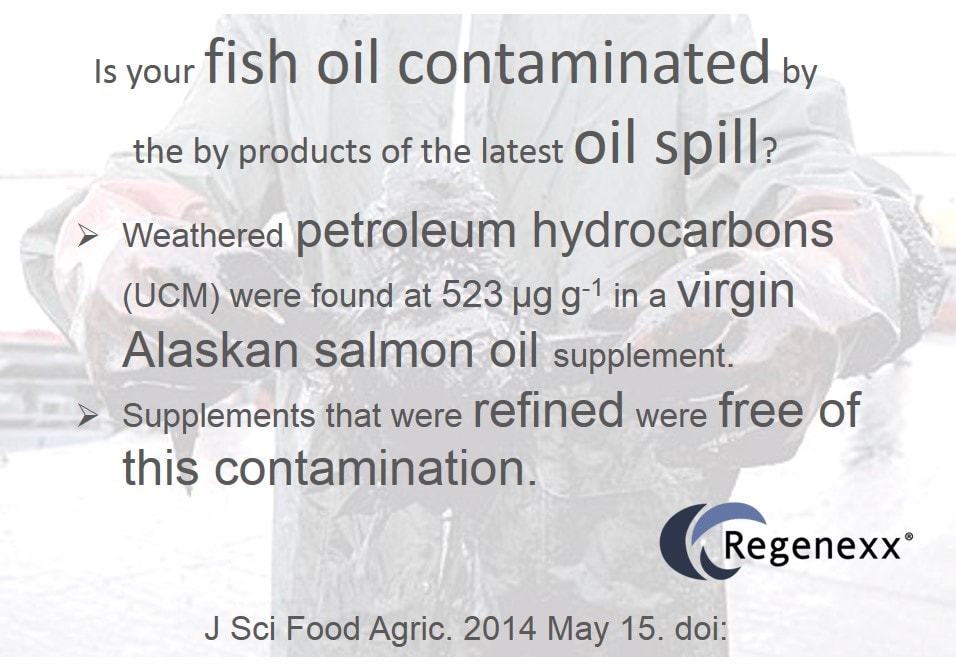Fish Oil Side Effects: Is the Latest Oil Spill in Your Fish Oil Caps?
Are there fish oil side effects you don’t know about? I’ve blogged many times about the benefits of fish oil. However, I’ve also noted that some sources of fish oil may be dangerously contaminated with arsenic. Now a new study has found that virgin Alaskan salmon oil may also have an unwanted surprise-bits of Exxon Valdez!
Fish oil is pretty healthy stuff. As an example, in one study it helped patients with arthritic knee pain walk faster. In another study fish oil helped women reduce their risk of getting rheumatoid arthritis. In addition, a recent review of many studies showed that it was also good at protecting against fatal heart attacks.
There are lots of different kinds of fish oil on the market. There are a few issues you should know about to be a good consumer such as oxidation, the details of concentrating the oil, and sourcing. I’ve blogged before about the big problem of “fishy smelling” fish oil which is oxidized. Basically, if your fish oil smells like Fisherman’s Wharf, it’s likely not helping you as much as it could. Second, how the oil is concentrated is also a big deal. For example, maintaining the natural triglyceride form of the fish oil during the concentration process is expensive, so many fish oils use a cheaper method which changes the effects of the oil in your body. Finally, which fish or other marine life acts as the source of the fish oil can also matter. I’ve blogged before on the differences between cheap krill oil and more expensive fish oil.
Another issue of fish oil production is whether the oil is virgin or refined. Virgin oil is unrefined and as such, maintains the natural triglyceride form. Concentrated fish oils have to be refined to get to the higher density of DHA and EPA, which as stated above, can often wreck the important triglyceride structure of the oil. Since maintaining that natural form results in a more expensive pill, many companies that focus on the low end of the fish oil market don’t concentrate at all and proudly advertise that their oil is “virgin” (unprocessed). However, could this also cause problems?
Obviously, what’s in our oceans matters when it comes to what ends up in the fish oil. A recent study posited that oil spills could contaminate this whole process. They looked for unresolved complex mixtures (UCM), which are biologic markers of oil spills ingested by marine organisms. It was very concerning that they did find weathered petroleum hydrocarbons in the form of UCM at 523 µg g-1 in a virgin Alaskan salmon oil supplement. The supplements they tested that were refined were free of this contamination.
The upshot? Be careful with virgin oils that contain Alaskan salmon, as nobody wants a piece of the Exxon Valdez in their daily fish oil supplement! In the meantime, refined oils that take the time to convert the oil back to the natural triglyceride form (these are all more expensive than the junk you find at CostCo) seem to be a safe bet!

If you have questions or comments about this blog post, please email us at [email protected]
NOTE: This blog post provides general information to help the reader better understand regenerative medicine, musculoskeletal health, and related subjects. All content provided in this blog, website, or any linked materials, including text, graphics, images, patient profiles, outcomes, and information, are not intended and should not be considered or used as a substitute for medical advice, diagnosis, or treatment. Please always consult with a professional and certified healthcare provider to discuss if a treatment is right for you.

